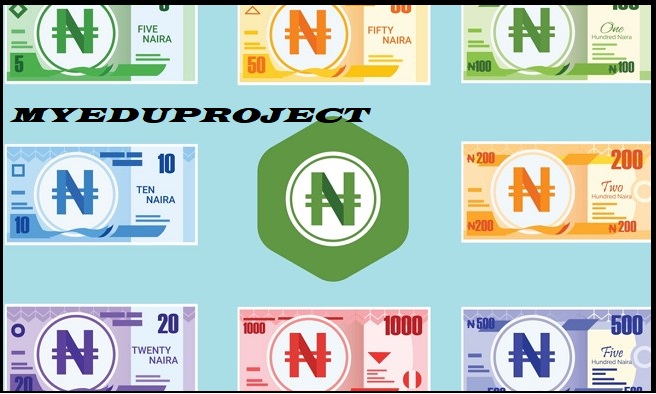Business
Why Banks, Big Businesses Are Against CBN On eNaira

There are strong indications that banks, major retailers and other businesses in the country have united against the adoption of the Central Bank of Nigeria’s (CBN) digital currency, eNaira.
Daily Independent gathered that 10 months after its launch, visits to big stores across the country and shopping channels showed that there is very little awareness of the innovation.
Though the digital currency transactions have recorded 200,000 volume and N4 billion value since its inauguration on October 25, 2021, analysts believe this is rather too small compared to the expectation of the promoters.
The eNaira is a digital currency denominated in naira and serves as both a medium of exchange and a store of value.
CBN governor, Mr. Godwin Emefiele, said that the eNaira would make a significant positive difference to Nigeria and Nigerians, as it would ease their participation in the global digital economy.
“Specifically, the eNaira is expected to enhance financial inclusion, support poverty reduction, enable direct welfare disbursement to citizens, support a resilient payments ecosystem, improve availability and usability of central bank money, facilitate diaspora remittances, reduce the cost of processing cash, and reduce cost and improve efficiency of cross-border payment, among others.
“The eNaira was also developed to provide Nigerians with a cheap, safe and trusted means of payment.
Unlike the offline payments channels like agent networks, USSD, wear ables, cards and near field communication technology, the eNaira would give access to financial services to underserved and unbanked segments of the population.
“Innovative products and services built on the eNaira would enhance Nigerians’ participation in the digital economy and promote further development of a burgeoning Fintech ecosystem”, he had said.
Investigation by Daily Independent revealed that banks are afraid that the eNaira will erode the gains they record in the e-payment space.
For instance, the value of transactions via the two digital payment platforms – Nigeria Interbank Settlement System Instant Payment System and Point of Sales terminals – rose to N111.29 trillion from January to September, this year.
The two platforms recorded a 44 percent growth in value of payments when compared to an aggregate of N77.49 trillion in the corresponding period in 2019.
A breakdown of data obtained from Nigeria Interbank Settlement System showed that NIP grossed N105.3 trillion from January to September, this year, whilePoSdealswereworthN6.4 trillion during the same period.
A top banker, who preferred anonymity, said since the banks don’t see themselves making money from the CBN’s digital currency, they are reluctant to push the idea to their teeming customers.
He said, “The banks need to be educated on the digital currency if the CBN is serious about making a strong impact with it.
At this rate, I can’t see any significant progress for the digital currency in the next five years.”
While giving an update recently, Emefiele, said, “Since the launch of this great initiative, the eNaira has reached 840,000 downloads, with about 270,000 active wallets comprising over 252,000 consumer wallets and 17,000 merchant wallets.
“In addition, the volume and value of transactions on the platform have been remarkable, reaching above 200,000 and N4 billion, respectively.”
Analysts at Coronation Research said, “The structure of the eNaira is similar to a commercial bank account. However, it is non-interest bearing.
Excluding executing and managing digital currency tokens, the CBN would be able to gather, analyse and store data on eNaira transactions. The role of deposit money banks would be to take responsibility for conducting KYC and AML/CFT compliance compatibility on merchant eNaira wallets as well as monitoring illicit activity”.
In a move to make the digital currency more attractive, the CBN said it is slashing transaction costs for its eNaira platform by 50 percent, a move the bank claims will increase the volume of transactions on the central bank’s digital currency platform (CBDC).
Additionally, the apex bank believes that wider adoption of the CBDC will bolster Nigeria’s cross-border commerce volumes.
In one more transfer geared toward boosting the embrace and adoption of the eNaira central financial institution digital forex (CBDC), CBN reportedly stated it can slash the service charges incurred by people and retailers utilising the digital forex platform by 50%.
As well as Nigerian companies signing on to turn into eNaira, retailers have a possibility to extend the volumes of their respective e-commerce transactions by 50%, a report has stated.
The CBN deputy governor, Kingsley Obiora, said the report means that Nigerian companies adopting the CBDC may enhance money administration and doubtlessly enhance the nation’s cross-border commerce volumes.
Additionally, the implementation of cross-border transactions in section three of the eNaira challenge is anticipated to extend cross-border commerce by about 30 percent.
Moreover, the decreased transaction value is anticipated to extend the utilisation (transaction quantity and worth) of eNaira and enhance revenue era by companies.
With all the attributes of the digital currency, the CBN is worried by the slow adoption of the eNaira, as it knocked commercial banks across the country for not promoting the digital currency.
Aminu Muhammad, Head, Development Finance Department of the CBN, said financial institutions under the purview of the CBN were supposed to play these critical roles in growing our economy.
Daily Independent learnt that a few of the commercial banks in the country are actually introducing the digital currency to their customers while a large number of these banks are not promoting it. The reason, according to Joseph Abina, a banker, is not farfetched.
According to him, “The banks are not the central operators of the innovation and they don’t see any benefit for pushing it”.
Send Us A Press Statement Advertise With Us Contact Us
And For More Nigerian News Visit GWG.NG